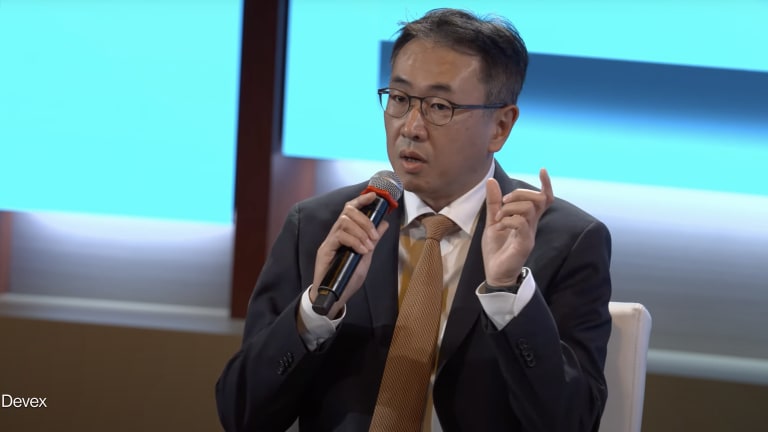
At the World Government Summit in Dubai last week, World Bank President Jim Kim renewed his call for an initiative to “help countries invest more, and more effectively, in their people” through education. More funding for education is a laudable goal, but the bank’s role in such investment won’t deliver on its promises until the bank takes care of its own fundamental problems — its projects, even in the education sector, can still cause harm in violation of bank policy, and its accountability offices are chafing against failed institutional responses to the work of those offices. If these basics are not addressed first, Kim’s central ambition to increase bank financing to end poverty by “crowding in” the private sector to go from “billions to trillions” will be a setup that harms the poor and vulnerable and widens the wealth and equity gap.
Addressing harm caused by bank projects, promoting inclusion of vulnerable groups, and ensuring accountability should be Kim’s most urgent priority. Once these fundamental problems are addressed, the bank can better meet its own objectives and deliver value to the private sector as it too looks to create impact.
In its first decades of operations, World Bank investment left a wake of human rights and environmental abuses at project sites. Donor countries imposed due diligence standards to rein in abusive practices, but investigations found that the World Bank was not following them. Since the bank has immunity from being sued in courts, in the mid-1990s, the bank was forced to create accountability offices to ensure people had a place to complain when those standards were violated.
Decades later, while the bank’s accountability offices are doing their job, many of these abuses continue. Once the accountability offices have investigated harm and reported abuses, it is up to the bank’s leaders to take action. They often fail to do so.
I work with marginalized communities who suffer the most from abuses resulting from the bank’s failures. As Kim darts from Davos to Dubai, it’s places like Assam, India, that deserve his attention and political capital. The World Bank’s private sector arm, the International Finance Corporation, owns a 16 percent stake in tea plantations where indigenous Adivasi people live and work in oppressive conditions, are paid abysmally low wages, and where women on the tea plantations are more likely to die in childbirth than any other women in their state. The IFC has refused to use its leverage to address abuses that its own accountability office confirmed in a scathing report in 2016. Kim has stood by while IFC management effectively shrugged in response to the findings.
See more related topics:
► Is the World Bank's Inspection Panel due for a rethink?
► Inside the campaign to support communities harmed by development
The opportunity to lift 155,000 people out of poverty who live and work on the plantations remains unfulfilled. It is not too late for Kim to focus on ensuring that investment in Assam creates positive development impacts for these tea workers and their families. It’s something that he can control, and that he’s responsible for ensuring, given the IFC’s direct role and his own accountability office’s findings.
In the times this past year that I’ve met with Kim or listened to him speak about his enthusiasm for supporting the private sector, I have heard no evidence of the bank making a financial commitment to its safeguard standards and accountability proportional to its lending ambitions. Under his current strategy, the most vulnerable people will bear the brunt of the massive inflows of private capital that Kim seeks to “crowd in.” They deserve a stronger institutional commitment to accountability so harm can be addressed when it inevitably happens.
If the bank is searching for relevance in a world where investment in “impact” is a $9 trillion industry, bank leaders could be relevant by doing three things.
First, the bank should use its investments to improve the situation in places like Assam and others. The World Bank, and other multilateral development banks, can add significant value to their investments by committing to their own social and environmental standards designed to protect against harm from the dams, pipelines, and roads they finance. The bank can and should be a source of expertise for the private sector on the challenging job of implementing safeguard standards.
Second, the bank could improve its accountability offices, helping the private sector learn what best practice looks like and how they can enhance positive impact for communities around the world.
Third, the bank could work to invest in the civic fabric of communities in a way that lifts the voices of the most vulnerable to ensure they too benefit. Speaking up about a project that will take your land or livelihoods can land you in jail — or worse — in many areas where the bank invests. It’s those people who should be the explicit and targeted beneficiaries of the bank’s “Citizen Engagement” work.
As the World Bank tries to increase private sector investment from billions to trillions, it should make a proportional commitment to safeguards and accountability to put its money where its mission is — with the poor. Only then will the bank be ready to take on new initiatives that we can be confident will succeed.








